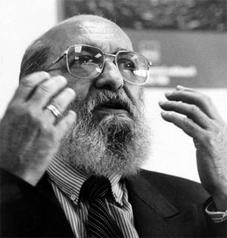Am I oppressed? In most senses no. I’m white, from an upper-middle class background in the world’s most influential country. My relatives and my antecedents may have experienced poverty, but the closest I have ever come was having to hypothetically balance a budget on a minimum wage job for my Urban Social Problems class a few years ago. At the same time, I have still been oppressed by a government so tied up in red tape my voice is lost. I have still been oppressed by my skin color working to my disadvantage during high school basketball tryouts, at least in the coach’s eyes. I have still been oppressed by a school system that failed to support persons of lower incomes to take advanced classes, in that I never got their perspective in class. Thus far, it has been challenging to connect with a theology of liberation aside from a belief in its necessity. Yes I believe that the poor should enter into an equal playing field in our society. However, empathy is impossible and sympathetic support is unstable ground. I feel like I am flying my privilege flag every time I perform community service. That being said, Rhodes College has exposed me not as an oppressed individual, but as one indirectly oppressing others.

Rhodes College supports, even if not ver batum, a “problem-posing” education model (Friere 83). Fruitful discussion, perplexing dialogue and impactful reflection allow students to “develop their power to perceive critically the way they exist in the world with which and in which they find themselves” (Friere 83). For example, in only my second semester at Rhodes I took Sociology 101. The initial assignment was a 5 page paper analyzing our racial, religious, socioeconomic, and gendered experiences. From then on it has been a rare occasion in which my whiteness and my male privilege has not been set up on the table for inquiry. Nonetheless, Rhodes presents a docile and enriching environment; our education model encourages critical thinking and co-facilitation with the faculty scholar. My voice is heard—in stark contrast to our governmental and media system—as is the voice of my classmates. I learn from their experiences and the ways they have come to understand the 18 or 20 years on this earth so far. Together, students, staff, and faculty, we create a human community, ideally free from oppression.
In this regard, Freire explains that in order for the oppressed to be humanized, the oppressors must also by conscientized to their privilege. A simple change of scenery will ignite hostility and backfire from the oppressors. Freire writes that for oppressors, “conditioned by the experience of oppressing others, any situation other than their former seems to them like oppression” (Freire 57). As an oppressor, I cannot just be placed as a subordinate to someone I have for years been socialized into believing was inferior. Instead I must be taught to think differently, to learn to value the humanity in my peer, who although from a different background, can teach me something and I him in diplomatic dialogue.
I am also in an Intercultural Knowledge and Competency course this semester and I am looking forward to engaging with Freire’s problem-posing model of education there as well. The two classes seem to meld almost seamlessly. More importantly I think intercultural competency is rooted in dialogue.
“Founding itself upon love, humility, and faith, dialogue becomes a horizontal relationship of which mutual trust between the dialoguers is the logical consequence” (Freire 91).
Regardless of race and regardless of gender and regardless of class, this campus and more importantly this human race could use more love, humility, and faith to guide our relationships with one another.


I like this. Thank you for sharing your thoughts
Love Dad
Sent from Windows Mail